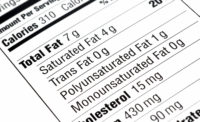Innova Market Insights, The Netherlands, released data that shows a +60% rise in global food and beverage launches using a vegetarian claim between 2011 and 2015. Launches featuring the term “vegan” also rose to account for 4.3% of total introductions in 2015, up from 2.8% in 2014 and just 1.5% in 2012.
The trend toward reducing meat intake has led to the emergence of new opportunities to target vegans, vegetarians, non-meat eaters and non-red-meat eaters, otherwise known as flexitarians, who mainly eat a plant-based diet.
“This trend represents a growing opportunity for high-quality meat alternatives, which is also being reflected in the 24% average annual growth in global meat substitute launches recorded between 2011 and 2015,” says Lu Ann Williams, director of innovation.
Germany has been leading this trend, with high levels of innovative new product development in meat alternatives and meat substitutes, and 69% of consumers claiming to eat meatless meals once a week or more. The United States is lagging behind on just 38%, although 120 million Americans do already eat meatless meals.
The trend toward flexitarian, vegetarian and vegan diets has accelerated the move toward the use of plant-based proteins as meat substitutes. The majority of meat substitutes are still soy- or wheat-protein based, but products are evolving with alternative protein ingredients such as egg, pea, ancient grains and nuts.
“Paradoxically, another key area of opportunity in meat substitutes may be in targeting meat eaters as much as vegetarians,” adds Williams. “While many vegetarians may opt for a diet rich in vegetables and beans, meat eaters may turn to meat substitutes if the product is right. Instead of just finding alternatives, technological solutions also need to be focusing on the development of meat substitutes closely mimicking the taste and texture of meat products.”





